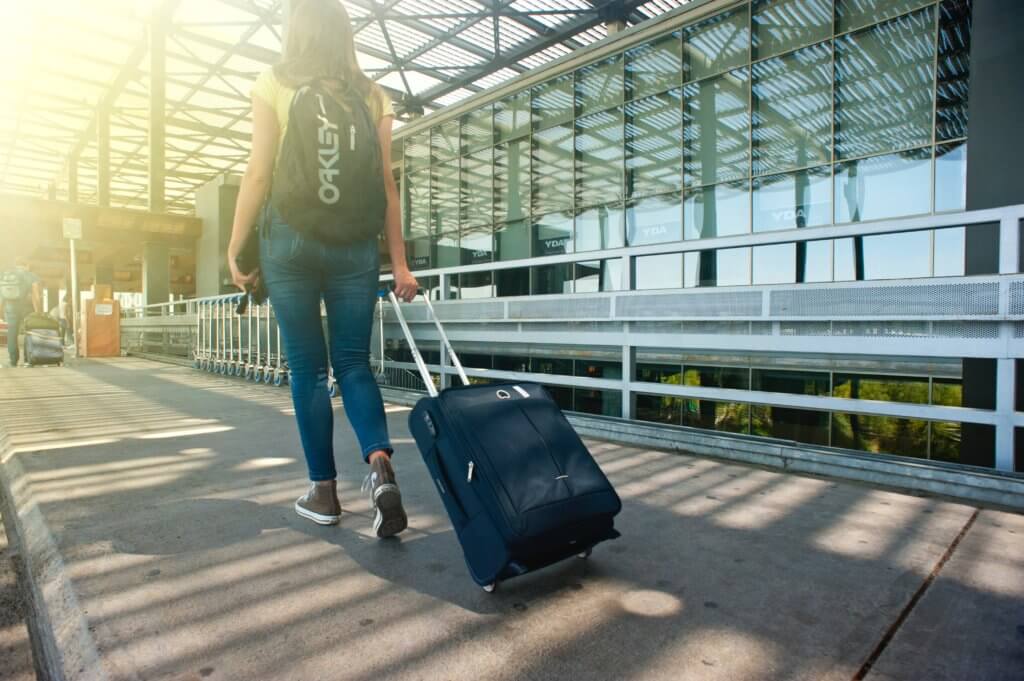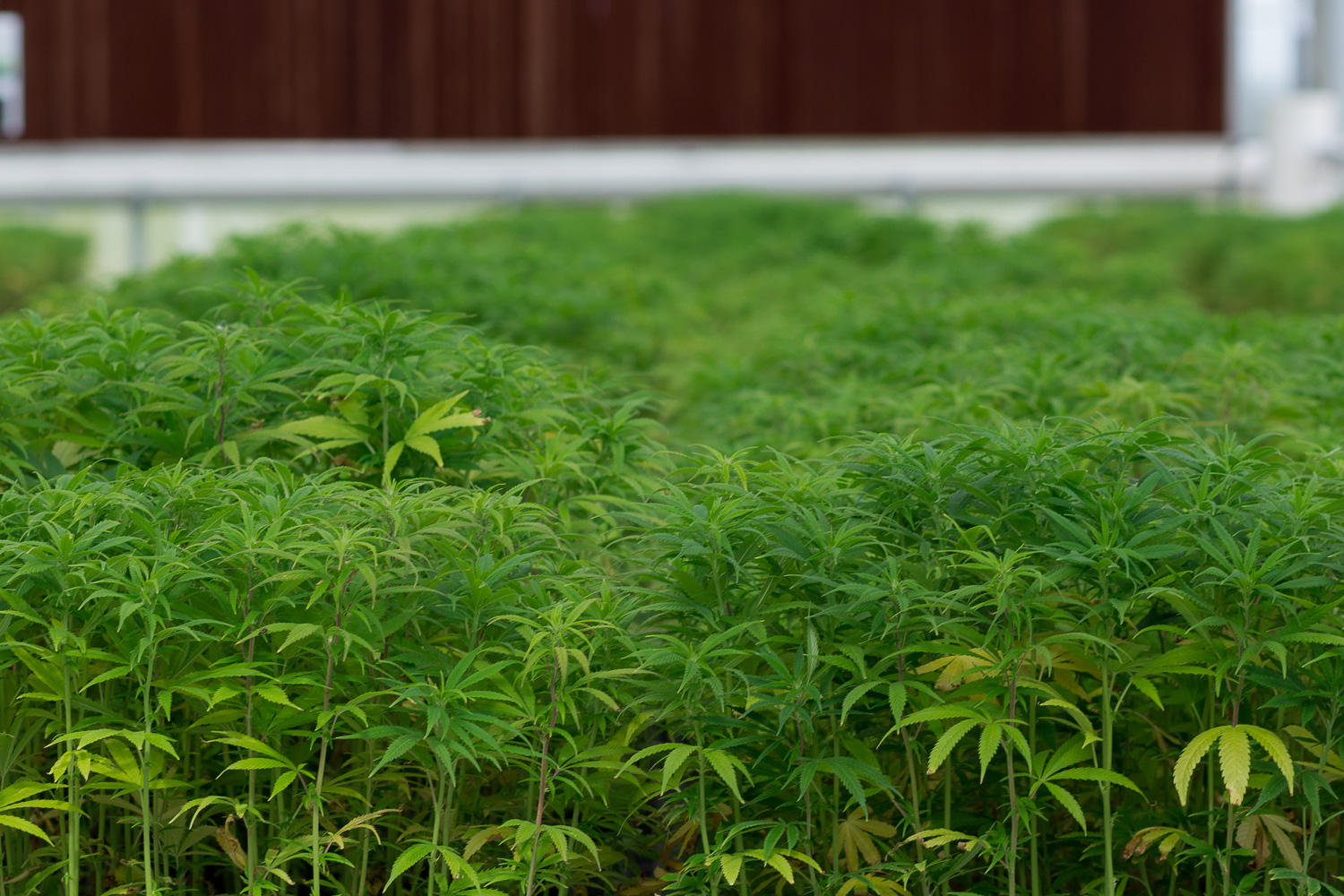
CBD on the road: Travel tips for CBD users
The boom in popularity of cannabidiol (CBD oil) has spawned a plethora of questions relating to its legal status due to its connection to the marijuana family.
Travelling with CBD has been a major area of concern, with people unsure of whether it is safe to transport products with them both nationally and internationally.
However, passengers travelling around the United States are now able to take CBD oil with them after the Transport Security Administration (TSA) introduced new rules.

The TSA recently updated the “What Can I Bring” section of its website in response to the introduction of an FDA-approved epilepsy medication containing CBD oil.
The new content now reads as follows: “Marijuana and certain cannabis infused products, including some Cannabidiol (CBD) oil, remain illegal under federal law except for products that contain no more than 0.3 percent THC on a dry weight basis or that are approved by FDA (See the Agriculture Improvement Act of 2018, Pub. L. 115-334.). TSA officers are required to report any suspected violations of law to local, state or federal authorities.
“TSA’s screening procedures are focused on security and are designed to detect potential threats to aviation and passengers. Accordingly, TSA security officers do not search for marijuana or other illegal drugs, but if any illegal substance is discovered during security screening, TSA will refer the matter to a law enforcement officer.”
Why did this happen?
The update brings some clarity to an area that had previously caused problems for many travellers. Products like CBD Gummy Bears that fit within the TSA description can now be packed in both checked and carry-on luggage, clearing the way for people to safely transport CBD.
TSA’s screening procedures generally focus on security, with its officers concentrating on identify threats to aviation and passengers.
They do not specifically search for marijuana, but if any illegal substances are discovered during screening the matter will be referred to law enforcement agencies.

A TSA spokesperson said: “TSA was made aware of an FDA-approved drug that contains CBD oil for children who experience seizures from paediatric epilepsy.
“To avoid confusion as to whether families can travel with this drug, TSA immediately updated TSA.gov once we became aware of the issue.”
“Possession of marijuana and certain cannabis-infused products, including some Cannabidiol (CBD) oil products, remain illegal under federal law.
“TSA officers are required to report any suspected violations of law, including possession of marijuana and certain cannabis-infused products.”
What do the experts say?
It is fair to say that many people have been confused about whether they should travel with CBD, but the TSA’s announcement may help clear to things up.
David Bannard, an attorney with Kaplan Kirsch & Rockwell LLP in Boston, advises airports on marijuana and other regulatory issues. He says the TSA’s update is an interesting development that demonstrates several different factors.
“First, this confirms the split between the federal regulatory regime and those states that have legalised marijuana for certain uses, especially for recreational use,” he said.
“Second, it also shows that Congress is beginning to follow the general public and may presage the devolution of regulation of marijuana to the states.
“Lastly, it does not mean that it is legal to fly with marijuana products in one’s possession – that remains impermissible under federal law.”
Rick Weissman, president of High Falls Extracts, a New York-based CBD company, believes his industry has been left in ‘regulatory limbo’ by the authorities.
New rules and regulations around hemp are not due to be implemented by the Food and Drug Administration and the United States Department of Agriculture until the end of 2019.
Weissman said: “As a general word of caution about traveling with CBD, I would counsel those people doing so, to do so discreetly and not flash it in the face of authorities.
“In this era of transition, where the federal authorities have yet to come down with definitive rules on CBD marketing and use in many products, many states or local governments are creating their own rules.”
Should I travel with CBD oil?
While the TSA’s announcement is a step in the right direction, it is probably prudent to exercise a degree of caution if you’re planning on travelling with products containing CBD oil.
If you’re heading away from home with an FDA-approved drug containing CBD such as Epidiolex, make sure you take your prescription and any relevant documentation with you.
Things can get complicated between state law and federal law, with the former having the potential to trip you up with regards to the transportation of CBD.
If you are travelling in a state where CBD is deemed as legal you will be fine, but possession of any cannabis-derived products in certain states may result in a felony, so caution is recommended.
Transportation of CBD in your car may be easier, although you may run into problems if you are pulled over on suspicion of a different offence.
For instance, if a law enforcement officer were to find a small bottle of CBD oil in your car they may decide to confiscate as they would be unable to determine whether it contained tetrahydrocannabinol (THC) – the main psychoactive constituent of cannabis.
International travel with any cannabis-related products is also a risky prospect, with some countries exercising much more leniency than others.
The landscape in relation to CBD is changing at a rapid rate, meaning it makes sense to keep abreast of all the latest developments.
If you are unsure about travelling with CBD, an alternative route to consider would be to order your favourite product to be delivered directly to your end destination to avoid taking any risks along the way.